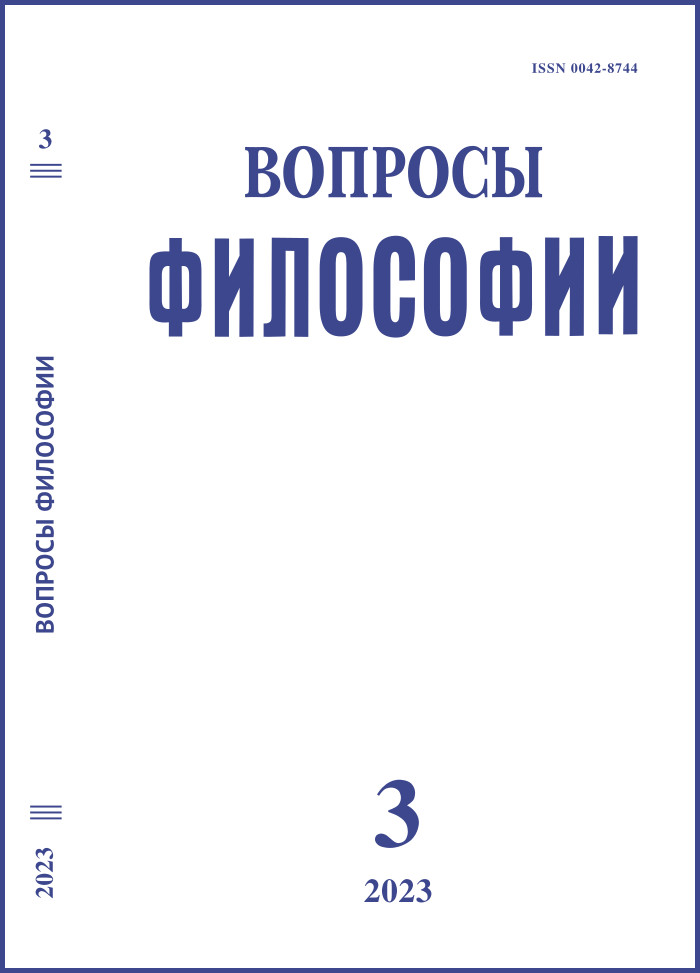Some Aspects of Mohist Interpretation of “Heaven”
DOI:
https://doi.org/10.21146/0042-8744-2023-3-160-175Keywords:
Chinese philosophy, Mohism, theology, god, heaven, divine will, moral, providentialism, naturalism, theismAbstract
This article examines the question of the ontological status of ‘Heaven’ in Mohist teachings (5th–3rd centuries BC). The reconstructions of the Mohist understanding of ‘Heaven’ (‘Heaven’ as personal deity, as natural force or community of spirits) that have been proposed in modern philosophical sinology are all based in the original source, but logically fit with each other poorly. They are analyzed based on the material of Mozi, ch. 4, 26–28 etc. The analysis shows both strong and controversial points of these interpretations (the question of the anthropomorphism of ‘Heaven’: from the point of view of their philosophical opponents, the Mohists undeniably humanize ‘Heaven,’ but from their own point of view, it is more correct to talk about ‘heavenization’ of people; the question of ‘karmic’ nature of ‘Heaven’s actions: the Mohists often describe these actions as reactive and regular, however, the textual material allows one to conclude that they rather think within the framework of ‘legal providentialism’, i.e. when the will of a deity is an ‘administrative’ law, implemented by the ‘apparatus’ of the ‘heavenly’ government of spirits, it is not ontological law; the question of the degree of identity of ‘Heaven’ and other representatives of the spiritual world: the Mohist ‘Heaven’ can have its representatives in the spiritual world, but mostly the name ‘Heaven’ is interchangeable with the name ‘Supreme Sovereign’; the question of correctness of understanding ‘Heaven’ as ‘Nature’: despite the classical view that ‘Heaven’ in ancient Chinese philosophy is a synonym or personification of ‘Nature’, for Mohists this does not seem to be the case, since they do not include ‘man’ in the ‘heavenly’ realm). The conclusion is made that these reconstructions can be reconciled with each other if one accepts the pragmatically oriented nature of Mohist theology. The hypothesis is made that Mohist ‘Heaven’ is a kind of an ‘umbrella term’ that arose from the synecdocheal expansion of the meaning of a location (‘sky’) on the things that/who inhabit it or govern it (and from inside it)

